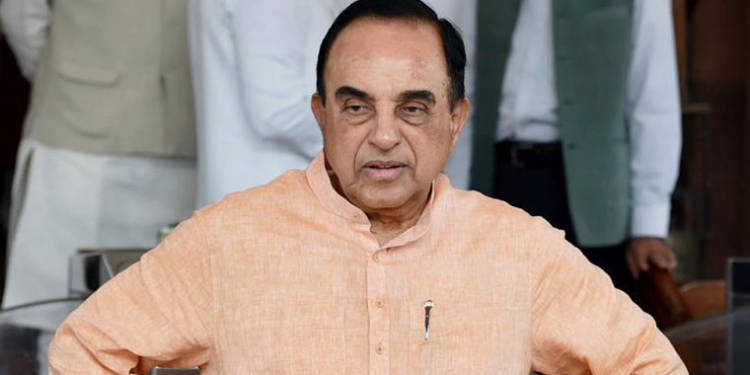In a seminar discussion organized by The Indo-Israel Friendship Association [on ‘Leaders’ Idea of Nations in the Context of Zionism and Hindutva’], Dr Subramanian Swamy, the visionary BJP leader and member of Rajya Sabha has argued that Hinduism and Judaism should come together and fight Islamic extremism. He counted many similarities between Hinduism and Judaism including no involvement in proselytizing activities.
“We, too, believe in one god although his manifestations are many and therefore, there is no difference between Judaism and Hinduism. The one thing that is common between Judaism and Hinduism is that both don’t believe in active conversion,” said Dr Swamy.
The discussion was organized at University of Mumbai, Prof. Gadi Taub from Hebrew University of Jerusalem was there to present Jew perspective while Dr Swamy presented Hindu point of view. Dr Swamy argued that the Hindu and the Jew communities together can fight against Islamic extremism which is a common enemy. He said:
“Zion is today under attack from Islamic extremists, and therefore both of us should come together to fight the Islamic terror forces. During the November 2008 attacks, the terrorists made a special target of the Jewish people staying here.”
He also gave historical perspective on how the Hindu community gave asylum to the Jew community whenever they were in need. “Indians have always treated Jews as their own and have helped them whenever they were in trouble,” said Dr Swamy.
The interfaith relation between Hinduism and Judaism is the backbone of Indo-Israeli ties. “Jews have lived in India for over 2,000 years and have never been discriminated against. This is something unparalleled in human history,” said Rabbi Metzger. Thousands of Jews visit Himalayan states every year as tourists.
Israel has considered India as ‘natural ally’ given the similarities in history, culture, and enemies but the previous Congress governments were not very keen on reciprocating Israel’s friendly gestures. The baggage of secularism and fear of being sidelined by the Islamic world was the reason behind Congress’ half-hearted response. However, in the last five years, the Modi government has been able to improve relations with Israel as well as with the Islamic world simultaneously.
In July 2017, PM Modi essentially ‘dehyphenated’ India’s relationship with Israel-Palestine and became the first ever Indian Prime Minister to visit Israel. The visit was a notable exception from historical ‘balancing act’ of a mandatory visit to Palestine whenever an Indian official visited Israel. “Prime Minister Modi, we have been waiting for you for a long time, almost 70 years…We view you as a kindred spirit,” said Netanyahu on Modi’s visit.
In January 2018, Benjamin Netanyahu became the second prime minister on an official visit to India since Ariel Sharon’s historic tour to the country in 2003.
Under Modi government, India discarded the baggage of Nehruvian Socialism in foreign policy towards Israel. In a historic move, recently, India voted against the Palestinian human rights organization named ‘Shahed’ to deny the body observer status at UN’s Economic and Social Council (ECOSOC). Maya Kadosh, deputy chief of mission at the Israel embassy in India had said, “This is a good sign… India was the first country to support us amongst the Asia group, so we are very happy.”
The deeper defense, security, economic, science and technology and cultural ties with Israel would be mutually beneficial. Thousands of Jew population live in various cities of the west coast of India and the Israeli population has the highest approval for India. Israel remains one of the most trusted countries among Indian populace but the previous Congress governments, being true to their elitist nature, remained biased towards Israel.

























